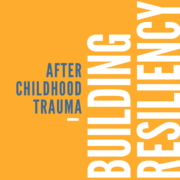Adverse Childhood Experiences (ACEs) such as abuse, neglect, and household dysfunction are potentially traumatic events in childhood that have been linked to increased risk to negative outcomes in adulthood. Aversive community environments can also have a traumatic impact. These include factors such as communities with high poverty rates, violence, poor housing quality, and limited supports/ resources.
- 60% of Americans had at least one adverse experience (ACE) during childhood
- One in six people had 4 or more types of ACEs.
- BIPOC, other marginalized communities, and females, were at greater risk for experiencing 4 or more ACEs.
Imagine a scale stacked with multiple ACEs. This could be a child who has faced multiple traumatic events in a short period of time or complex-trauma such as severe and pervasive abuse or neglect throughout childhood. Protective Factors not only provide supports for both children and their families but are also important factors in helping “stack the scale” against aversive childhood experiences.
It is remarkable to see hear stories of resiliency despite adversity in childhood.
Have you ever wondered what helped foster residency? Perhaps you reflect on your own story, or the story of someone you admire.
Research has identified the following key-concepts as important to fostering resilience: supportive child-adult relationships, building self-efficacy and perceived control, opportunity to strengthen adaptive and self-regulation skills, and utilizing supports such as faith and cultural traditions.
Dr. Ginsburg, a pediatrician who specializes in research fostering resilienceidentified 7 C’s of Resiliency: Competence, Confidence, Connection, Character, Contribution, Coping, & Control.
Strategies to Build Resilience:
- Notice what children are doing right. Use positive reinforcement to encourage, support, and motivate.
- Find opportunities to build competencies and confidence in children. Help children discover their values, develop their character, and contribute in meaningful ways.
- Create strong relationships with supportive adults, including relationships with those with shared social identities and cultural traditions. Help children feel safe to approach adults and use self-advocacy and assertive communication skills.
- Help create safe spaces in which young people can foster connections in their homes, schools, and communities.
- Teach children how to cope with everyday challenges using techniques such as stress management, problem-solving, and conflict resolutions skills.
- Help children develop good habits for physical and mental well-being such as healthy eating, good sleep hygiene, and regular exercise.
- Encourage children to engage in practices that reduce stress and regulate the body. Yoga, meditation, and enjoyable physical and creative outlets are great options.
- Help children make connections to the things that they can control by developing an internal-locus-of-control.
Written By : Charlotte Johnson, MA, LPCC
We’re Here to help
Our wellness experts will be happy to take care of you. You can CLICK HERE to schedule an appointment now or call (612)223-8898.
Meet Clinicians
We’re united by our commitment to providing effective, relevant, and innovative mental health support at all stages of your journey. Click Here to find out more about who we are, where we come from, and how we live out CARE’s mission every day.
The professionals at CARE are actively collecting and creating resources to help with what you need. We’re Here for You.



